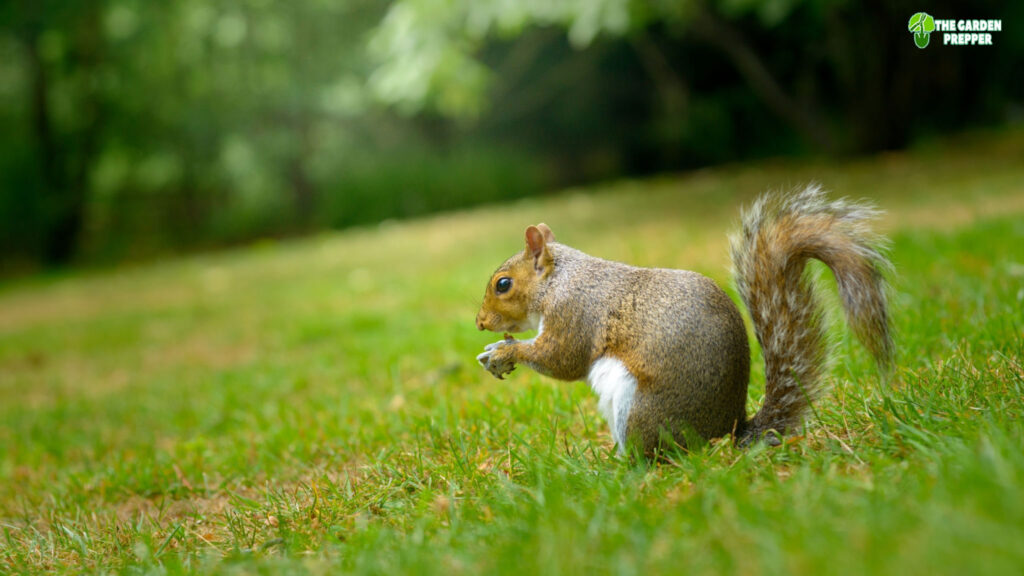Gladiolus bulbs are a summer favorite among many gardeners, thanks to their vibrant colors and attractive design. Unfortunately, like many flowers and plants, these can fall victim to a few pests and animals, namely squirrels. But do squirrels eat gladiolus bulbs or is there nothing to worry about?
Unfortunately, they do eat and steal gladiolus bulbs, leaving you with damaged plants and bulbs. But why?
Read on to find out!

Do Squirrels Eat Gladiolus Bulbs?
Yes, squirrels eat gladiolus bulbs, especially during the summer and fall as they search for food! Fall planting season may be the worst since this is the time food sources begin dwindling, and squirrels are out looking for food to last until winter. You may find them digging around, looking for bulbs, seeds, and whatever they can eat.
Squirrels target bulbs since they can’t digest cellulose material, so they depend on protein-rich plant structures found in bulbs and nuts. That said, gladiolus bulbs aren’t their priority, with crocus and tulips being their top choice.
If you have gladiolus bulbs, they are at risk of being pulled out by squirrels if they are rampant in your area. The same goes for chipmunks, both of which are common in neighborhoods that have old and mature trees.
For those who live in neighborhoods with a ton of tree squirrels, it’s almost impossible to grow gladiolus bulbs or other bulbs, for the matter, outdoors. Some gardeners even report squirrels sitting and watching gardeners plant bulbs before coming in to pull them out for a feast!
Stop Squirrels From Eating Gladiolus Bulbs
Fortunately, you can help keep it from happening and deter squirrels from eating away your bulbs! Here are a few helpful tips to follow:
- The foolproof method is to cover bulbs from squirrels, covering them with hardware cloth or chicken wire. Cover the material with a mulch of bark of shredded leaves, which will hide the wire. You can also use the chicken wire or hardware cloth and create cages, which is helpful to protect your bulbs from squirrels and tunneling animals.
- Squirrels are attracted to smell, and if you use smelly fertilizers made of blood meal, bone meal, fish emulsion, among other natural fertilizers, it will lead them to your garden. Avoid natural fertilizers and opt for synthetic fertilizers without odor.
- Plant gladiolus bulbs among other groundcovers and perennials, so squirrels have a more difficult time looking and digging for bulbs.
- Try using natural repellents made to deter creatures away. Besides store-bought products, you can use red pepper flakes around your bulbs, which effectively keeps squirrels from digging.
- For bulbs planted on established garden beds, consider placing sharp gravel or crushed oyster shells around the soil.
- Try distracting the squirrels from your bulbs by giving them another source of food. Set up a squirrel feeding station, so they have easy access to nuts and grains, so they don’t bother going to your bulbs. However, this is a controversial method, and you will also need to check with local ordinances if feeding wild animals is allowed.
- After you finished planting your bulbs, remove the papery layers and clean up the planting area. Get damaged bulbs you aren’t planting, plant debris, and other materials away, as this would catch attention.
- Delay the planting time of your gladiolus bulbs. The squirrel frenzy begins during the early fall season, then quiets down come late October. You may want to plant spring-blooming bulbs a bit later in the season.
Wrapping It Up
I know how frustrating it can be to find your garden dug up and your bulbs taken away. Gladiolus bulbs still fall victim to squirrels and other rodents, but that doesn’t mean you can’t protect your bulbs. With the right tips and tools, you can keep pesky squirrels eating away at your garden for good.
I hope you learned a lot about squirrels and gladiolus bulbs and what you can do to protect your bulbs. If you’ve got squirrels around, make sure you keep them away with the tips mentioned above. Good luck!